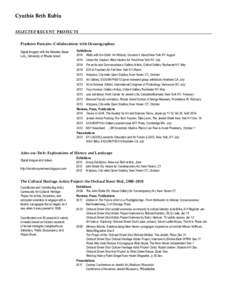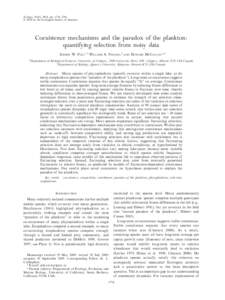<--- Back to Details
| First Page | Document Content | |
|---|---|---|
 Date: 2006-04-18 10:43:42Marine biology Aquatic ecology Biological oceanography Planktology British Oceanographic Data Centre Plymouth Marine Laboratory Plankton Zooplankton Primary production Oceanography Water Biology |
Add to Reading List |
 Atlantic Meridional Transect The AMT programme has run since 1995, conducting multidisciplinary research during the annual return passage of the Royal Research Ships (RRS) James Clark Ross or Discovery between the UK and
Atlantic Meridional Transect The AMT programme has run since 1995, conducting multidisciplinary research during the annual return passage of the Royal Research Ships (RRS) James Clark Ross or Discovery between the UK and

